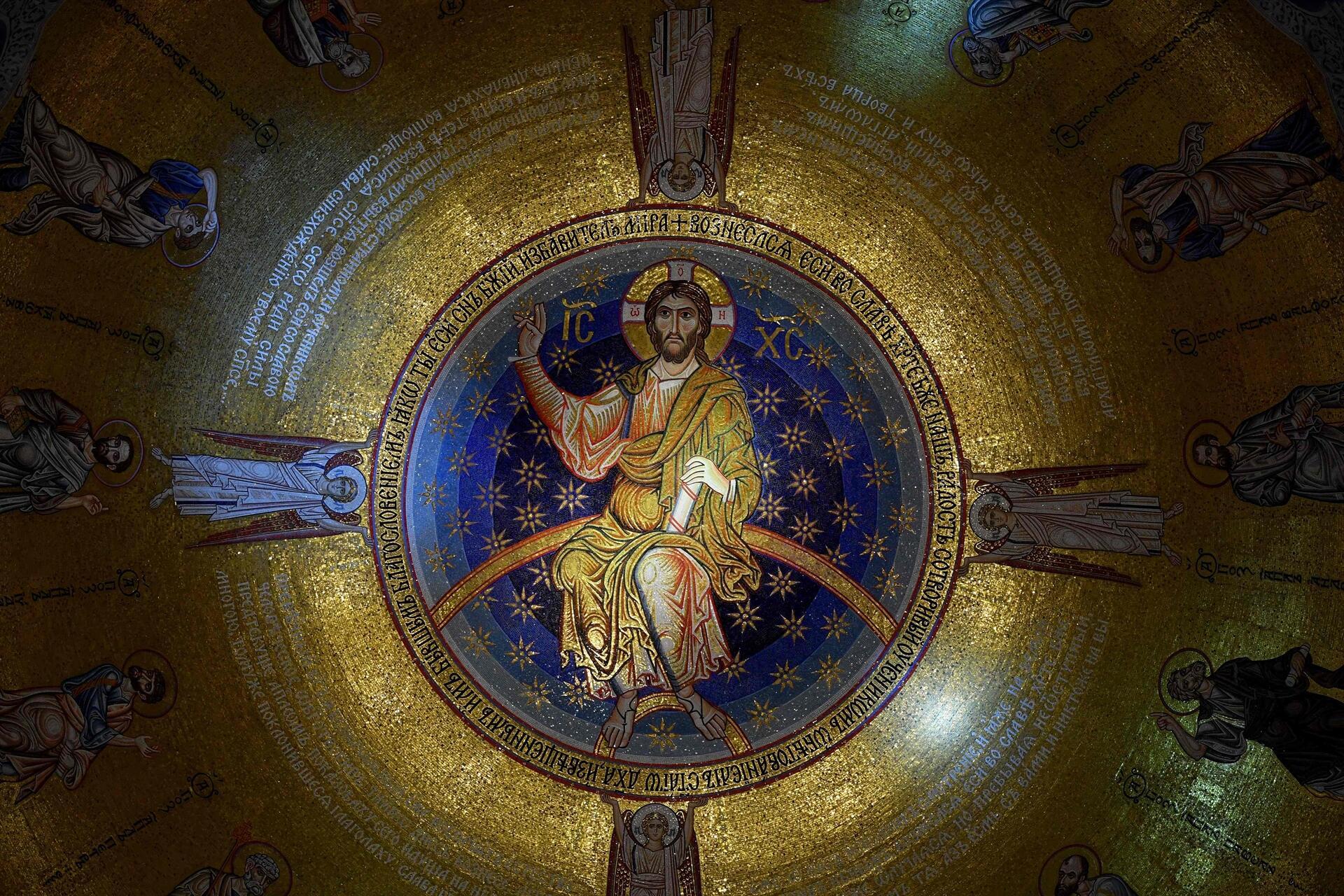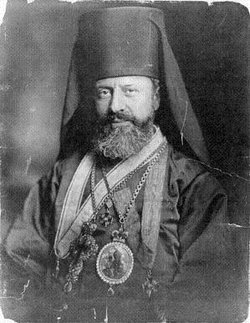HOMILY: The Parable of the Good Samaritan
In the name of the Father, and of the Son, and of the Holy Spirit, One God. Amen.
What shall I do to inherit eternal life? That is the question levied by a lawyer towards Christ in today’s Gospel reading, preceding the story of the Good Samaritan. It is a question that is answered within the law, something for which one would expect a lawyer to be well versed. Yet, the mind and heart are not always on the same page. Furthermore, the heart and hand are not always in one accord. Yet, Christ shows how little the lawyer knows by the answer he provides. Despite this, the lawyer tries to justify his question, and quite possibly his known personal failures to abide by the answer he was given, by asking further, who is my neighbor? Perhaps, being a lawyer, he had a very legalistic understanding or definition of this word, and so in his own mind he was abiding by the law. Yet, this is a trap of legal scholasticism, of reason, or an understanding of a Truth only as written, and no understanding of the Truth in praxis.
In part, we are warned against this in our reading of the lesson for today, when Paul exhorts: “We have such trust through Christ toward God. Not that we are sufficient of ourselves to think of anything as being from ourselves, but our sufficiency is from God, who also made us sufficient as ministers of the new covenant, not of the letter but of the Spirit; for the letter kills, but the Spirit gives life.” The letter here is of course the law of Moses, the law that condemns sinners, but it can today easily be a reference to the totality of scripture, all of which points to Christ, who has assumed the mantle of the Torah as the law of the Spirit of life. He is life. He gives life. His path leads to life everlasting.
All we have to do is follow, listen, and obey. Though, Is it not curious that we sometimes justify our omissions and occasional evils with the very same words and teachings we use to justify the good? How many of us, before finding the Church, followed our own understanding, devised our own truths about Christ, about the Church, and what it was to be Christian. Many of us were quick to interpret the word of God in our own image, in our own likeness, carrying our own opinion, often finding some way to use scripture to justify ourselves in our own ideas, our own lives, much like the lawyer tried to justify himself with his inquiry.
The Law, and the Spirit. One tells us what to do, and the other tells us how to do it. What spirit are we following? One presents the guidelines of life, much like the canons do the Church, but the spirit shows us how to walk within them. Look around us at the milieu of those amidst the colors and trappings of popular Christianity. They go to their respective places of worship on Sunday, sing their songs, hear a sermon preached, and they go out into the world devoid of any sacramental life, most lacking in any spiritual discipline, and missing the unity of teaching found in the fullness of Truth. Is it any wonder this same “church crowd” is so despised by nearly every server at every restaurant I have ever dined at? Why should we ever see or hear an angry Christian driver on a Sunday morning or afternoon after services have ended? Why should we ever witness the angry frustrations of a post church service Christian over something as simple as an item being out of stock? Why should we ever see a Christian lose their temper over trivial things on the day they should have received the kiss of peace? They know the Truth, or at least they heard it, but they have no idea how to put that Truth into practice. They have no Church, which is the Pillar and foundation of Truth (1 Tim 3:15), established upon the foundation of the teachings of the Prophets and the Apostles, of which Christ is the cornerstone (Eph. 2:20). We are all living stones apart of the Church (1 Pet. 2:5), which is the body of Christ. It is as a living part of that Church, living a sacramental life within, that we not only come to know the Truth rationally, but understand spiritually how to live it as well.
The Lawyer knew the Truth. He knew what the law said, but not how to live it. He sought a different answer from Christ, from what he knew to be true. Likewise, the priest and Levite both knew what the law said, and what the law required of them in this circumstance, but they instead used that same law to justify their passing in order to maintain their ritual purity. They knew the Truth, but now how to exercise it. It was only the Good Samaritan who truly understood the spirit of the law, and how to incarnate what was written.
So, in response to the lawyer’s question Christ told him the parable of the Good Samaritan. This parable, according to some Fathers, encompasses the entirety of the Gospel, and the spirit of Truth it conveys to us all. The realities of the Gospel are found within this simple story: Christ, the Church, and the means by which we are saved.
Nearly all the Fathers interpret this parable in some allegorical fashion. They tell us that in the Samaritan we see Christ, who does not define His neighbor, nor ours, in respect to action or honor, but of nature. We were all created in the image and likeness of God, and all equally a worthy recipient of love, both of God’s and our own. The oil wine the Samaritan poured on his wounds symbolizes the sacraments of the Church, and the two coins he paid are the two testaments we have received. The inne is the Church, of which has been established upon Christ’s honorable blood. It is in the Church that we find healing from the wounds of Sin. This is one of many reasons the Church is often referred to as a hospital for our souls.
The battered man is each one of us, beaten by the world and wounded by our own sin. The priest passed him by for his priestly sacrifice could not save the man. The Levite passed him by because neither could the law save him. While these two were very near to the man by birth as Israelite, they were most distant at heart, bearing little compassion for the man who lay before them. It was the Good Samaritan, who had compassion on him, and in a selfless act helped his fellow man.
Let us remember what Christ has said in the Gospel of Matthew:
‘Come, you blessed of My Father, inherit the kingdom prepared for you from the foundation of the world: 35 for I was hungry and you gave Me food; I was thirsty and you gave Me drink; I was a stranger and you took Me in; 36 I was naked and you clothed Me; I was sick and you visited Me; I was in prison and you came to Me.’ Compassion and Humility are bedfellows, for compassion helps to develop humility as we place the needs of the other before our own. If we have compassion, then we also have humility, for one exists inside the other, and Humility is the beginning of all virtue
The Good Samaritan incarnated virtue by himself becoming Love in action. In the good Samaritan we find an archetype of Christ, who is Love incarnate. We should love every man and woman, and have great compassion for them, and whatever their needs my be, regardless of who they are; whether they have wounded us or not; whether there is hatred between us or not; whether there is offense or injury, forgiveness being of great importance; and whether we love them or not. Compassion for the suffering of another is the easy part. Learning to Love as God Loves is much harder. But fear not, we are surrounded by God, by God’s love, and by God’s grace as much as a glass submerged in water is both filled with it and surrounded by it. We can never be without it.
We should love so vigorously that there is no room in our hearts for hatred, for Saint Maximos the Confessor tells us that the Gospel absolutely precludes us from hating any human being, even those who would hate us without reason.
Let us heed the words of Saint Isaac the Syrian:
St. Isaac of Syria tells us how.
“Let yourself be persecuted but do not persecute others.
Let yourself be crucified but do not crucify others.
Let yourself be insulted but do not insult others.
Let yourself be slandered but do not slander others.
Rejoice with those who rejoice and weep with those who weep. Such is the sign of purity.
Suffer with the sick. Be afflicted with sinners.
Exult with those who repent. Be the friend of all.
But in your spirit remain alone.
Spread your cloak over anyone who falls into sin and shield him.
And if you cannot take his fault on yourself and accept punishment in his place, do not destroy his character.”
Simply saying you love is not enough. If your actions alone do not speak loudly to the contents of your own heart, then we are simply lying to ourselves in order to justify our weaknesses, our failings, and our sin. We must become love, for that is what God is, and that is what we strive to be.
By the prayers of thy most pure Mother, the Holy and God bearing fathers, have mercy on us and save us.
Amen.













